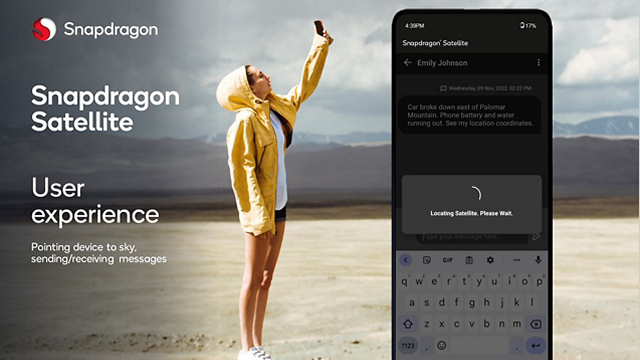Qualcomm has decided to abandon its plans to introduce satellite connectivity for Android phones, aiming to compete with Apple’s feature available in the latest iPhones.

In January, the company announced the Snapdragon Satellite feature in partnership with satellite communications company Iridium. However, the plan was terminated after just 10 months.
Iridium stated, “Qualcomm chose to end its partnership regarding this feature because no smartphone manufacturer showed interest in using it,” clarifying that they had successfully developed and presented the feature, but the lack of interest was evident.
Qualcomm mentioned that it continues to collaborate with Iridium on standardized solutions for satellite communication, even after canceling its developed solution.
This indicates that Qualcomm might still be able to offer satellite connectivity features for Android phones in the future.
However, the initial lack of interest suggests that this might not happen anytime soon, the goal of Snapdragon Satellite was to compete with Apple’s Emergency SOS feature, introduced in 2022 with the iPhone 14 in partnership with Globalstar, a satellite communications company.
Apple’s feature allows iPhone users to alert emergency services or request assistance via satellite networks when outside the range of regular cellular service.
Apple currently provides this service for free but plans to charge users for satellite connectivity starting next year.
The satellite connectivity feature comes standard in all new iPhone models, although Apple has not yet disclosed the demand volume for the service.
Apple currently covers the costs, so it remains unknown how many users consider satellite connectivity a necessity before they begin paying.
One potential reason for Qualcomm’s Snapdragon Satellite feature not being launched could be the payment structure.
Someone would have to pay Iridium for access to its satellites, putting Qualcomm in the midst of payment-related issues.
It’s clear that smartphone manufacturers did not view the idea of Qualcomm managing such a service favorably, this explains Qualcomm’s search for a standards-based approach to satellite communication, allowing smartphone manufacturers to control their relationship with satellite companies.


